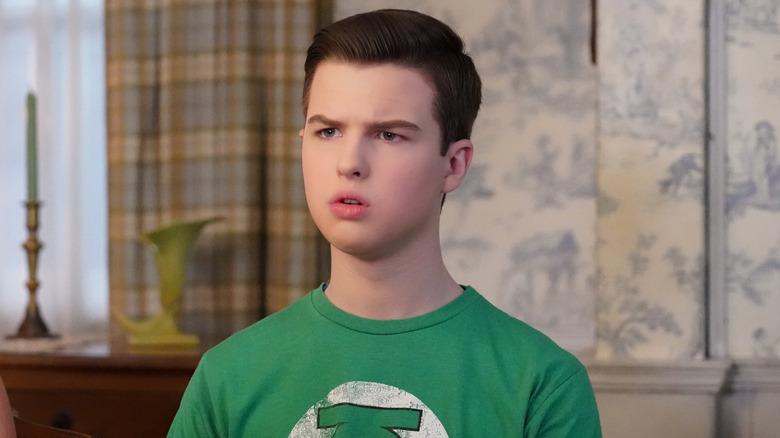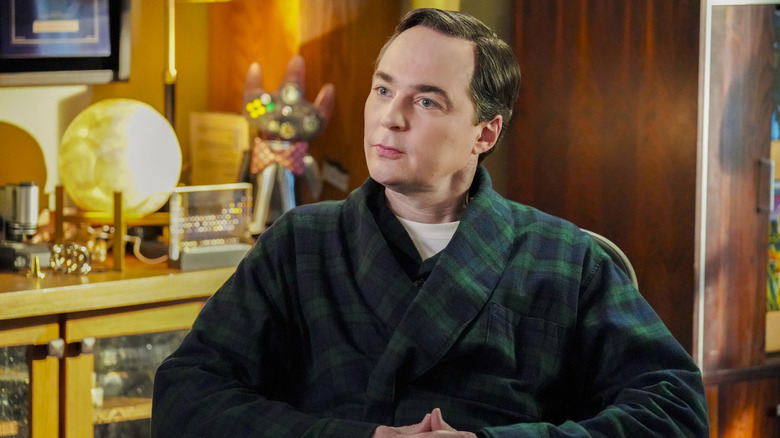Young Sheldon Season 7 Reveals Sheldon's First Word & It's What You'd Expect
Contains spoilers for "Young Sheldon" Season 7, Episode 12 — "A New Home and Traditional Texas Torture"
Amid all of the intense drama of "A New Home and Traditional Texas Torture," there are a few bright spots to leaven out the sense of sadness inspired by George Sr.'s (Lance Barber) sudden passing. Audiences get to find out Sheldon Cooper's (Iain Armitage) first word — and it's a properly brainy term.
Everyone's favorite supercilious nerd reveals that his first word was not "mommy" or "daddy," but "hypotenuse." For those who aren't as scientific as Sheldon, that's the longest side of a right triangle, opposite the right angle. This is wonderful foreshadowing both for the career path Sheldon ends up taking on "The Big Bang Theory," and a fun reference to the math interests which already keep his young mind hopping as he works his way through college. But things get even more interesting the more you think about what mathematics means to his future career.
Sheldon's first word foreshadows his career
The reason why Sheldon Cooper's first word is such an important nod to his future is because he grows up to be a Nobel Prize winner. Theoretical particle physicists use math — specifically models and abstractions — to map out what particles look like, how they interact with other particles to make matter, and how interactions between those models play out. Cosmology and quantum theory usually factor into these sciences, as does geometry.
Of course, math has sometimes been a double-edged sword for Sheldon. He's gone through several scientific crises in both "The Big Bang Theory" and "Young Sheldon" while trying to achieve the calculations he was looking for. But in the end, Sheldon manages to pull ahead, get his ducks in a row and — with the help of his wife, Amy Farrah Fowler (Mayim Bialik, who features in the "Young Sheldon" series finale alongside adult Sheldon actor Jim Parsons), creates a model that revolutionizes the world and wins him a Nobel Prize in Physics. Our first words don't always define who we become as adults, but in Sheldon's case, he was right on the money.

